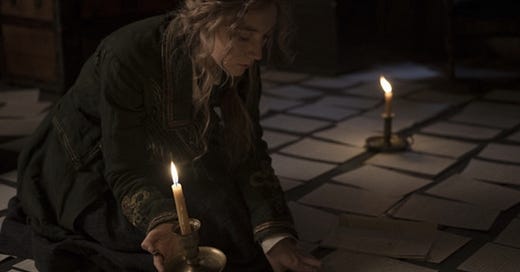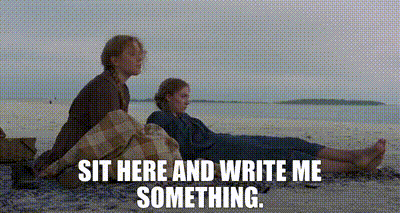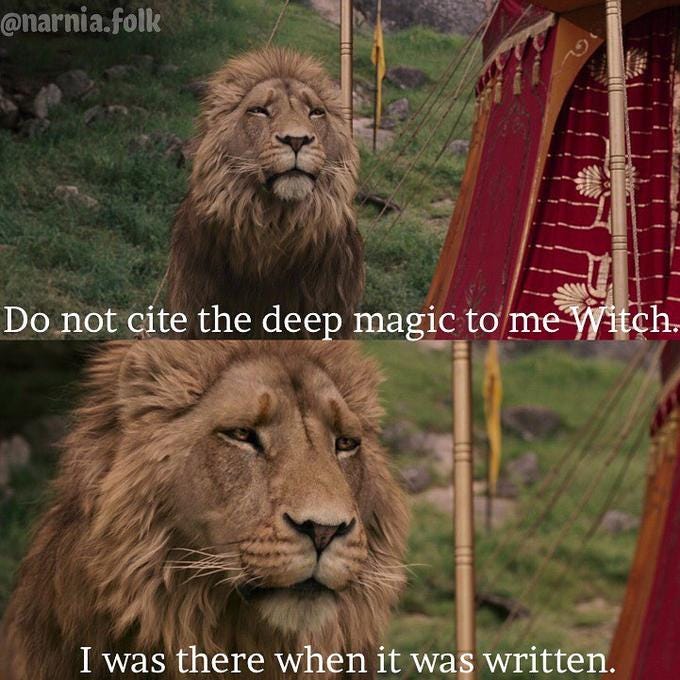on artistic effort and endurance in the age of AI
an essay / rant against AI, etc.
I was obsessed with reading craft books when I was a teenager. I loved writing and knew I wanted to “be a writer” — whatever that meant — so I would plop myself down in front of the Writing Reference shelves at Border Books in Eau Claire, Wisconsin and my local library and speed-read whatever I could before my mom told me it was time to go. That’s how I read my way through the Writer’s Digest series on things like Plot and Character; how I gobbled up Julia Cameron’s The Right to Write, Barbara de Marco Barrett’s Pen on Fire, Stephen King’s On Writing.
I’ve reread On Writing many times over the years. It was particularly contentious in my creative writing classes due to King’s claim that writers can become good through practice, but only already-great writers will be truly great. Or something like that. It was very much the, maybe she’s born with it; maybe it’s Maybelline question that haunts every creative industry: how much can be accomplished through effort, and how much only through sheer talent, lightly applied?
King has argued over the years that there’s only so much you can teach someone else about writing, because there’s no accounting for the talent portion. And to an extent, I think there is truth to that. But as I’ve grown in my own craft — and taught and advised numerous writers over the years — I’ve come to a different opinion:
That there’s only so much you can teach other writers, because you cannot teach someone how to sit with themselves.
I cannot teach you how to be comfortable in silence.
I cannot teach you how to increase your tolerance for being alone with your own thoughts.
I cannot teach you how to be curious about, or patient with, yourself.
I cannot teach you how to become more comfortable with the discomfort of making honest art.
To my mind, there is an absolute Grand Canyon of a chasm between the “I want to be a writer, I have a book I want to write” average Jane and actual writers — and it’s not publication, or being agented. It’s whether they can sit with themselves. It’s whether they have done, or are actively doing, those 10,000 hours.
Writing is a creative practice, but it is, more than anything else, an endurance game.
I can advise you on how to get “in shape,” on conditioning, but I cannot do the workout for you. It’s like that old saying: you can lead a horse to water, but you can’t make it drink.
Any practicing writer has learned to tolerate the ebb and flow of their own creative work. Or perhaps I should say “is learning to” — will I ever learn to truly tolerate the drop from an energetic, “productive” high to an exhausted, where the fuck is this going low? I’m not sure. But I do know that I’ve learned to trust Creativity: that Spirit that collaborates with me every day, who has ideas she wants to see birthed into the world that I’m clearly the one in charge of midwifing.
I know because I’ve been patient. I know because I have tended ideas in my garden long before I could see the outcome. I know because I have worked in the dark when there seemed to be no way through, but I loved the act of writing too much to not do it. I know because, in spite of being an extravert, I listen.
What I knew even as a teenager was that finding flow, or getting into the zone, was hard. What I didn’t know was that not every writing session has to be “inspired” or “flowing” from the jump to get to that point. What I didn’t know was that books are not written through inspiration alone.
What I eventually figured out was that if I relied on inspiration to fuel the work, I’d never finish a book at all.
Slowly, through the years, I figured out that inspiration could be seduced (although this, too, requires mindfulness and effort). I learned that flow would come more easily if I was sitting down to write every day already. Finding flow, or getting into the zone, is like entering a deep meditation. I recently heard an artist I admire say that you can’t just drop into a deep meditation instantly, with a snap of the fingers. That art doesn’t happen like that, and expecting it to puts an unfair burden on the creative process.
And this has felt especially notable because there’s been a lot of talk about AI around me lately: about how to use AI for art, about getting through projects faster because of its use. I’ve heard some people I really respect casually talk about how often they use it, which has quite frankly stunned me. Why would someone who understands and respects the value of the creative process — slow as it can be — use a machine that is only “trained” because it has stolen the work of published writers? Art in the age of mechanical reproduction, indeed.
I think a significant appeal of AI is that it shortcuts the discomfort of the creative process: the sitting in the muck of it, the not knowing what to write, the mistrust of self that inevitably impacts the trust of one’s art. The connective tissue in a book-length work that reveals itself over time. The years of taking one direction only to pivot on a project last-minute. The aha moments, when shit finally comes together in your body, the somatic knowing of goosebumps when you finally realize the way different characters or plot threads are intertwined. Being so deep in the work that you lose your “I,” when the immensity of the flow current takes you somewhere else.
You have not lost your “I,” not found that flow of the One, the universal consciousness through which art comes, if chatGPT told you what your major themes were.
Honestly, the use of generative AI by writers and artists saddens me. I hate seeing people, out of impatience, rob themselves of that relationship with Spirit, of that relationship with the work: the only way any of us “get better.”
Using AI robs you of your own aha! moment, of deepening trust with your own creative instincts, of getting better at what you do.
You have robbed your work of the happy accidents we only find in muddling through: in doodling, in procrastinating with research rabbit holes. You have robbed yourself of getting to that place, and in so doing, finding the magic.
I believe that everything living in this world is enspirited. But machines are not living. I am not opposed to them, of course — I’m writing this essay on a laptop. There is electricity in my home that has meant we’ve had light during a dark and stormy week. I am a big fan of the indoor plumbing that means I don’t have to use an outhouse in the depths of a cold New York City December.
Machines are wonderful for creating convenience that puts more space into our everyday life: for shortcutting things (heating up food) and lengthening availability (refrigeration). For replicating things on demand — like mass printing the books we sell in stores. For cutting way down on travel time (love an airplane!) and being able to communicate with our loved ones who live far away (epistolary novels are fun; waiting two weeks per letter would be maddening).
But there are processes that machines cannot (and, I believe, should not endeavor to) replicate. Spiritual processes. Creativity and imagination. The stuff of the internal life that contributes to our growth as individuals and our consciousness as a society. Imagine trying to meditate your way to more self-knowledge through the use of AI. Just as impossible: actually developing intimacy with the creative process through a machine telling you what to do. These things cannot be created within AI, because that intelligence is mere replication: what you are reading is not truly “generated” by the machine, but is the synthesized genius of human beings who have already done the hard work of sitting with themselves and writing, drawing, composing. Something I often hear is, “the AI said what I said better than I ever could have.” And, dude. Of course it did. That AI trained on Zadie Smith and Barbara Kingsolver and Jodi Picoult and Melissa Febos and Mary Karr and thousands of other writers who have spent time in the deep magic of creation.
Those writers got good (and are only getting better) because they’ve done their 10,000 hours. They’ve sat in the muck and endured the dry seasons and returned to their creative practice every single time. You’ve been trying to write a book for a year and got so frustrated by the process that you turned to a machine that is plagiarizing the work of better writers. You are not the same.
And it has nothing to do with your level of talent; your mustard seed of talent may in fact be the same style and shade of someone like Nikki Giovanni or Marilynne Robinson! But a willingness to sit in the frustration of the work is, ultimately, the thing that sorts the wheat from the chaff.
I disagree with Stephen King in that I don’t think talent is what separates great writers from good writers. Endurance is. (And curiosity about the craft on both macro thematic and micro line levels, but.)
Maybe I believe this because I know for a fact that while I am not the most talented writer in the room, I am one of the hardest working. I have endured the dry seasons, waiting for an idea that takes years to unfold itself. I have shelved multiple book proposals and projects in the pursuit of something more true, more honest, more real. I am willing to sit in the muck of that first draft that shows me what it wants to become. Currently, I’m two years deep into a novel whose landscape continues to shift. I got 40,000 words in and threw the first draft out; the last year has mostly been spent in deep meditation about the work, with barely 20,000 words to show for it. But so it goes. It’ll come.
Whether it’s journaling, a newsletter, working on my novel, or just free-handing weird scribbles in a coffee shop, I put pen to paper every. single. day. Those words may not be particularly good, but I do write. I think it’s important touch base with that most real and profound relationship in my life.
Really, it comes back to what I already said: most of writing is learning to sit with yourself. And the hard truth is that no class, no container, no developmental edits, no 1:1 astrology session is going to give you just the right hack to make the process of writing easier — or lower effort — for you.
I can hold space for your process, but I cannot teach you how to listen to your inner voice, let alone how to trust it. I can’t teach the sustained practice of silence; can’t unlearn your own internalized productivity mindset that devalues rest and refuses to prioritize creative inputs. I can tell you, but can’t get you, to trust that the material is working itself out internally, like a carrot that’s yet to be pulled up. And I can’t shift your priorities so that you are willing to give up other things for art because you care about the art more.
A lot of this probably sounds harsh, and it is. But there’s only so long you can hang out in the Writing Reference section at your local library or bookstore.
There’s only so many times you can take a class or a workshop or get a spiritual counseling session before all that’s left to do is just… sit with yourself. And see what comes to you in the silence.
Because if you wait long enough, something will come. And I can’t wait to hear about what does.
P.S. A good portion of the work I do is create creative, spiritually-oriented containers that give you intentional, protected space in which to do that inner work. Like The Grove: 6 Months of Collective Creative Devotion, a container I’ll be hosting with my love Meg Jones Wall of 3am.tarot. If that’s of interest, check it out.







I loved this essay So. Much. It reminds me of a quote from a yoga teacher on Instagram - "Struggle is a great thing. You are not here to nail the class, you are here to struggle. - @apurvatilwani insta
Sometimes, the struggle is the point. It is the negotiation of a sacred relationship between yourself and your creativity/ Spirituality.
"I believe that everything living in this world is enspirited. But machines are not living."
Side query: what about Mr. Data? Or Transformers? This is where my Witch and my science-fiction-geek selves meet.
I have named every car that I owned and discovered their personalities: my grandmother's car (that I inherited) needed gentle coaxing now and then; mom's car really liked to go fast; my car was quite reliable and a sure ride. (Pro tip: if you want to avoid accidents, don't name a car "Phantom.")
I go the Frankenstein route, I suppose: the creation can also be imbued with a spark of life, even if most aren't aware of it. I'm also a Namer by nature - if it's an important part of my life, it will get a name. Perhaps that's where the spark comes to life? (Yes, I know that the "monster" in the story was never Named, which was part of the problem, IMO.)
I also hear an echo of Sjoo and Mor's "Great Cosmic Mother" where they actually cite the Transforners as an example of horrific Patriarchal storytelling. I disagree, though I see where they're coming from. If one of these AI programs actually flips the switch, things will get very interesting in a hurry.
Will I ever use it, though? I don't have any plans to. My Imagination can still go places no machine can follow.